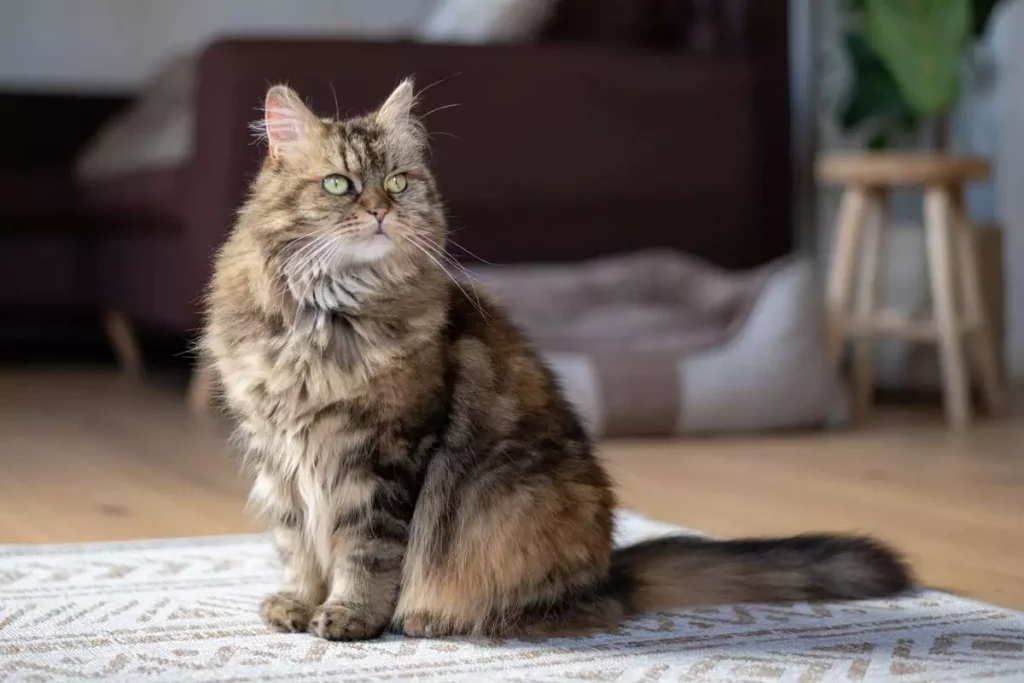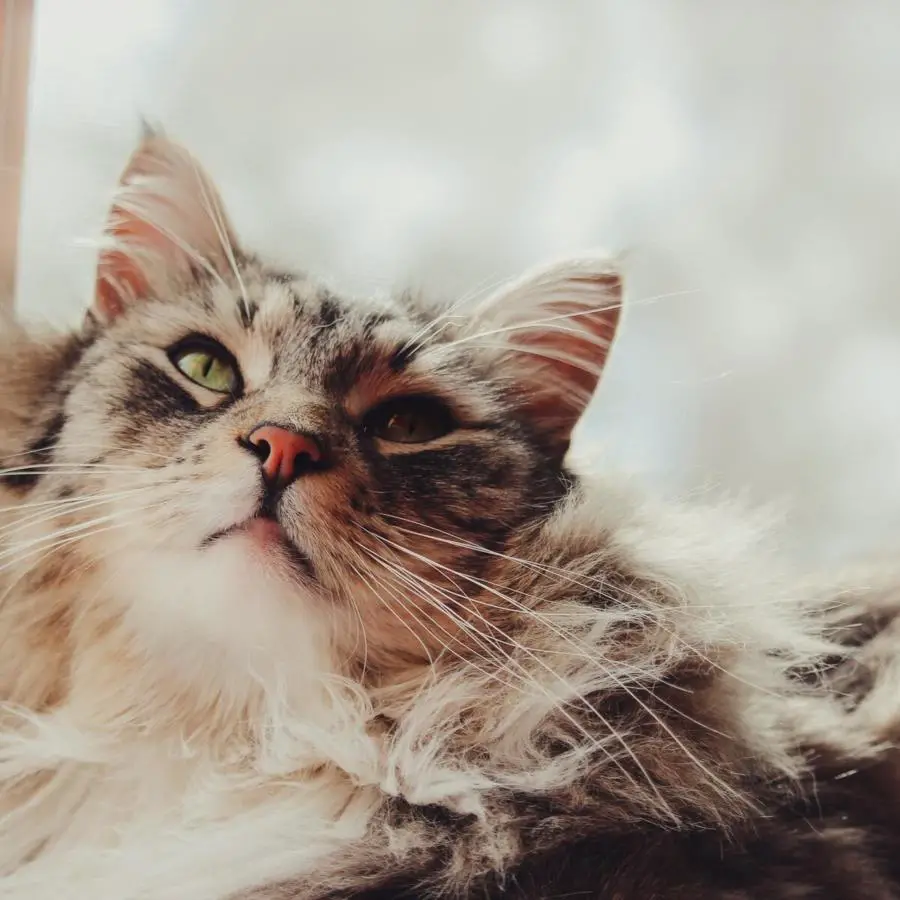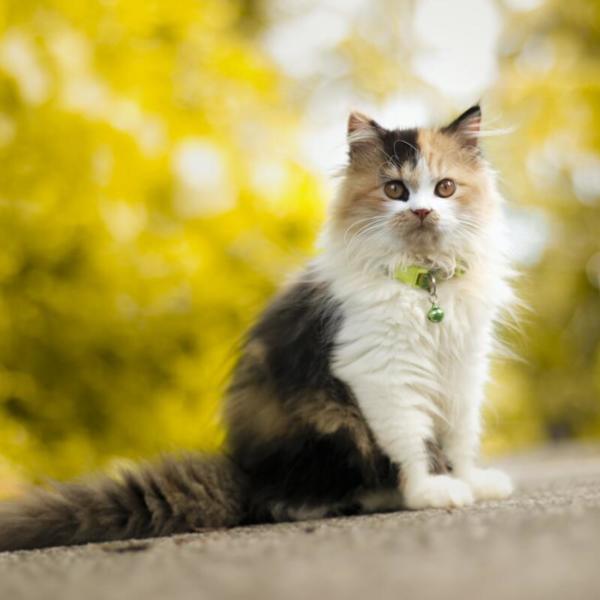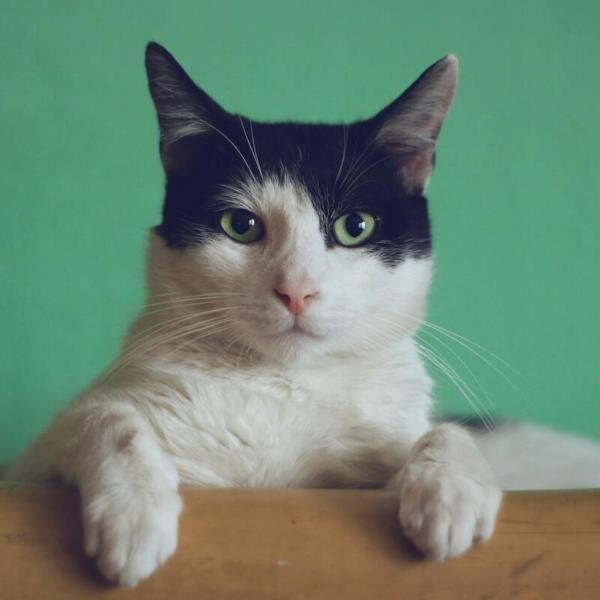Upon researching the perfect breed for my partner and myself, I’ve stumbled over many Munchkin’s and one of my top contenders was the Maine Coon.
Little side note: Ultimately, we went for a wonderful female British Shorthair, but the Coon is definitely a close second.
After diving deeper into the breed, I’ve noticed a huge discrepancy in Maine Coon size charts.
Everybody had a different opinion and I was pretty shocked to see that the size differences made a huge difference to how the breed appears.
Don’t get me wrong, every breed has smaller and larger individuals but with the Maine Coon, it’s just the Wild West out there.
I’ve seen relatively small (in terms of height) and incredibly stocky types which look more like the Norwegian Forest Cat.
The true Coon (whatever that means is dependent on whose book you’re reading or who you’re listening to) is quite large, and bears little resemblance to bully-type cats.
Confirmation came as I inquired with breeders who bred really large, healthy males (judging by, among others, hip/elbow x-rays and physical ability for sports).
These males went up to 18 pounds instead of the max of 15 pounds you’ll often read!
Keep in mind, at this weight, most cats are just flat-out overweight.
So I rationalized it by thinking European breeders just bred another type of Maine Coon.
Even the CFA doesn’t have guidelines on the Maine Coon’s weight and instead just says it has to be “proportional to the height”.

So keep these things in mind:
- Research the Maine Coon types and see which fits you best
- Stocky or tube-resembling types can end at 10-14 pounds while those with a strong bone structure can reach 15-18 pounds
- The CFA has no guidance, except “proportional heigh/weight”
- Most Maine Coon growth charts you’ll find are not from breed experts
Yep, that last point’s right.
Apart from the difference in end weight for Maine Coons, I’ve seen websites mention that 8-week-old kittens range from 1-2 pounds which is far too heavy.
Funnily, according to this chart, they only gain around 0.25 pounds a week (about half of what they really gain) which creates the same end weight.
Having a relatively accurate growth chart is important to avoid your Maine Coon being underweight (or worse, overweight).
Vets are not always familiar with the Maine Cat and it’s your responsibility to make sure your kitten has a healthy weight and gets all the nutrients as well as age-appropriate exercise.
Recommended Reading: Cats In Your Apartment? Everything You Need To Know To Live Happily Together.
Maine Coon Growth Chart
This Maine Coon growth chart will help to keep track of your kitten’s growth which usually occurs at a rate of approximately 0.25 pounds (100 g) per week for several months and should be proportional to their height.
If your Maine Coon deviates +/- 1-2 pounds as a kitten or up to 5 pounds as an adult, don’t worry as long as your cat is looking healthy.
Similarly, I didn’t provide ranges but averages instead, meaning if your cat is 1 inch (2.5 cm) larger or shorter, that’s not an issue at all as long as it’s proportionate.
You can easily tell if your Maine Coon is growing properly if you can see the outline of their ribs, notice their belly being tucked in and, when looking from above, clearly see the waist.
Besides looking from the side and from above, you should also be able to locate the ribs, spine, hips, and tail base by feeling.
Your Maine Coon might be underweight if you can clearly see a sharp outline of the ribs.
Conversely, if you can’t spot and not easily feel the ribs, then your kitten might be overweight.
In that case, the side profile is one flat line without that neat spot where the belly tucks in which often creates the athletic look.
How Fast Do Maine Coons Grow?
Maine Coon kittens grow around 0.25-0.50 pounds (100-200 g) per week as kittens but their weight gain slows down and growth in height stops after 10 months, from there on they only become wider and fill out with muscle.
Bone growth is finished at around 18 months which is why it’s so important to wait with neutering to that mark at the very least.
You can definitely disrupt the usual Maine Coon growth chart if you opt for early neutering.
During this time, your cat will also go through many behavioral stages.
Mental stimulation is just as important for your cat as physical exercise so definitely don’t discount a Maine Coon’s cognitive development.
Their increasing size correlates with changing behaviors as the hormones kick in.
However, sometimes the problem is that they get bigger and still behave like a kitten (i.e. leash pulling, excitement level, and so on).
It’s your job to properly navigate through all the stages, and that includes fear stages because mental development lasts until 2-3 years of age with large cats.
How Big Will My Maine Coon Get?
How big your Maine Coon will get depends on their genetics, diet, as well as exercise. If you want a large Maine Coon, don’t pick the runt of a litter or one where the parents aren’t large themselves.
Female Maine Coons usually weigh in at 6-14 pounds (4-7kg) at 2 years of age at a height of around 8-14 inches (20-35 cm).
Male Maine Coons usually weigh in at 8-18 pounds (5-8 kg) at a height of around 10-16 inches (25-40 cm).
If you already have a kitten (or past litters to compare your kitten to) then you can check the Maine Coon growth chart to see whether or not your Coon falls below or above the range.
Sometimes, a cat can make incredible jumps in the span of 2 months but if you suspect a growth problem, consult your vet as health issues can also prevent your cat from properly growing.
How Do I Bulk Up My Maine Coon?
The best way to bulk up your Maine Coon is a healthy diet and age-appropriate exercise which can include swimming or training with weighted vests but only after your cat’s bone growth is finished around 18 months.
It’s okay to desire a strong and healthy-looking Maine Coon but there’s a fine line to having an overweight cat.
Being overly bulky is not helpful for cats at all and with large breeds such as the Maine Coon, it can even be damaging to their hips and elbows.
Instead, aim for an athletic frame and don’t try to force any specific appearance.
Some individuals just look more muscular by nature.
Even within athletic breeds, there can be differences so don’t worry about your Maine Coon getting bulky too soon.



Leave a Comment